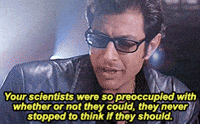Don’t Tell Me - Show Me
Just after Christmas in 2021, I read a story in The Wall Street Journal that has stayed with me.
It was about AT&T – and how they were cutting promised life insurance for their former employees.
The story mentioned a former employee who was offered an incentive to retire – a payment of at least $63,000 upon his death.
He took the deal, thinking that money would cover his funeral expenses and help his family after he died.
But earlier in 2021, AT&T notified him that if he was still alive on January 1, 2022, his family would receive no more than $15,000 when he died.
AT&T had made a deal, and now they were changing it – cutting life insurance and death benefits for more than 200,000 former employees.
They said the cuts “brought the benefits in line with what other firms offer.”
But that wasn’t the deal they had agreed to.
And I wondered how those former employees – and their families – would have been feeling.
Dying isn’t cheap.
A funeral can easily cost $10,000 – and that doesn’t include a cemetery, monument, or a plate of cold cuts to serve mourners.
Imagine having an extra $48,000 after your loved one died.
And of course, the real kicker in this story was reading that AT&T wasn’t applying these cuts to their former executives – who likely didn’t have as much need for the cash to cover the cost of a casket.
But I guess AT&T could do this – legally – so they did.
This story reminded me of one of my favorite lines from a movie – uttered by Jeff Goldblum’s mathematician/chaos theorist Dr. Ian Malcolm in 1993’s Jurassic Park.
After the dinosaurs (that Jurassic Park’s scientists had created) begin wreaking havoc and killing people in the park, Goldblum’s character scolds them by saying:
“Your scientists were so preoccupied with whether or not they could, that they didn't stop to think if they should.”
Perhaps in AT&T’s case, the lawyers said they could, so they did.
But what message does that decision from AT&T send?
Our payments were more generous than the market?
We want to cut costs?
We want to offer a greater return to our shareholders?
Maybe that’s what they told themselves.
But that’s not what I hear.
I hear:
We don’t value our people.
We don’t care about them.
You can’t trust us.
And if this is how they treat their employees, how do you think they’ll treat their customers?
I thought of that story earlier when I read that Paramount is being sued by former employees over mass layoffs the company made without notice.
Three hundred former employees claim they weren’t given sufficient notice under New York’s Worker Adjustment and Retraining Notification Act (also known as “WARN”).
Instead of the 90 days’ notice WARN requires, these employees were told “on or about September 24, 2004” that “their employment was terminated, on or about September 30, 2024.”
Paramount disputes the allegations, and offered this statement:
“Paramount employees entitled to Federal or State WARN notice receive it.”
You can feel the care and concern in that one, eh?
Imagine receiving less than a week’s notice that you were going to lose your job.
How would you feel?
Could you cover your bills? Your healthcare?
Does Paramount care?
I know, I know…They’re a company – they don’t have to care.
This is business.
But when I read stories like these – and anytime a company breaks the law (or bends it real, real hard) at the expense of their employees, I immediately do one thing:
Check out their values.
Companies spend a lot of money on values (and sometimes missions and visions, too).
But values are not just words to write on a wall.
They should mean more than that.
And they are not things to simply tell me.
They are things to SHOW me.
AT&T’s core values include: “Doing the right thing without compromise.”
Does backing out on a deal with former employees feel like the right thing?
And Paramount?
Underneath their Values of “Inclusivity & Collaboration”, it says, “we act with care.”
Does sacking people with less than a week’s notice feel like a sign of care?
And this is why communication is so important.
You can spend thousands of dollars (and hundreds of thousands) telling people your company values.
But it’s in the tough decisions – like benefit cuts and layoffs – when you show people what you really value.
So if you’re making tough business decisions, don’t just look at what the law says you can do.
Look at what your values say you should do.
__________________________________________
Beth Collier loves writing, pop culture, and when words and actions align.
She also loves helping companies, leaders, and teams improve their communication (and creativity and leadership) through consulting, coaching, and workshops.
Her clients benefit from Beth’s global corporate experience, Midwestern practicality and enthusiasm, and an endless supply of pop culture references.
To find out how Beth can help you become a more confident, creative, and compelling leader – or improve communication in your company – visit www.beth-collier.com or drop her a line at beth@beth-collier.com
__________________________________________





